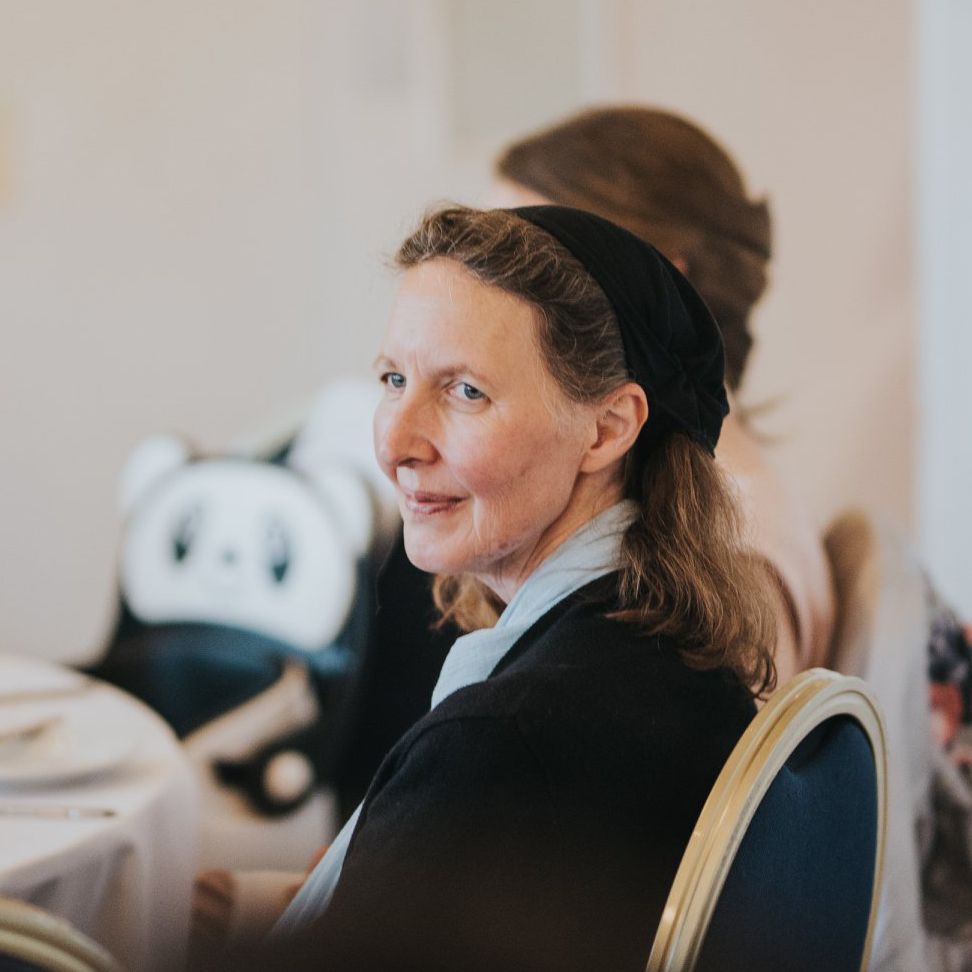8th July - Seventh Letter to Poppy
Secret diary: Thurs To cottage 2 M S Priest Old lady cries. Corbetts House searched
Official diary (8th July): I moved to a cottage on the river about two miles South South East of TULLYGLASS and stayed here on the 9th
Location: Hastings Farmhouse, Tullyvarraga
Thursday
My darling Pip,
No letters yet, but one may turn up tonight. Hope you really are getting along well and the boy is going strong. My letters from Fermoy are not being forwarded because the place they were sent to is, I believe, being watched. There must have been a good deal of difficulty in getting a nurse, if you are still at the Hall. Anyhow I shall hear all about it in a day or two.
Am still going strong, getting very fat with too much food and too little exercise; plenty to read and we get the newspapers daily, but I havnt seen the Times lately, only the one day. It seems difficult to get newspapers regularly owing to the railway trouble.
You had better start shortly making your own arrangements about rooms; anything that suits you will do. Does the young man kick up plenty of noise the whole time or is he fairly peaceful? I wish they would hurry up and settle what they are going to do about me. as I should like to come and see how you are all getting on. This is a very dull letter, but you will hear all the news when I get out.Is Dorothy up and about again, and Mother not overdoing it. We are having a fine day today at last.
Give my love to the boy, and keep plenty for Yourself.
your c
(Pencilled on bottom of letter:)
Just got your letter tonight so all is well. Get lots of fresh air.
C.
Seventh Letter sent to Mrs C.H. Tindall Lucas, The Hall, Welwyn, Herts England it is not clear on which day it arrived but was redirected to 1 Cleveland Gardens, Hyde Park LONDON W2 postmarked Eastbourne 1 15pm 12 July 1920 then redirected back to Welwyn 12.45pm 13 July.
CHTL was moved to Hasting's, more correctly described as 'a farmhouse’ than 'a cottage' as the latter in Ireland referred to an abode occupied by the poorest in society rather than having the chocolate box appeal that the name conjurers up in English minds. The 2MS fits with being 2 miles south of Brennan’s. John Hastings and his wife Maggie lived there, he was incredibly proud of having had the General in his house and spoke about liking him very much.
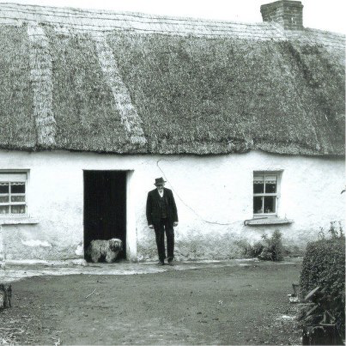
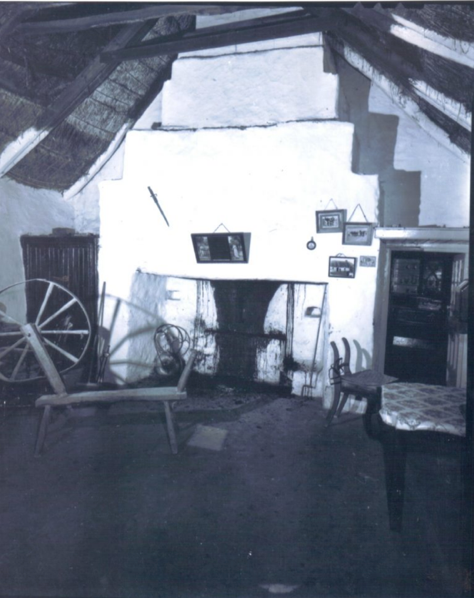
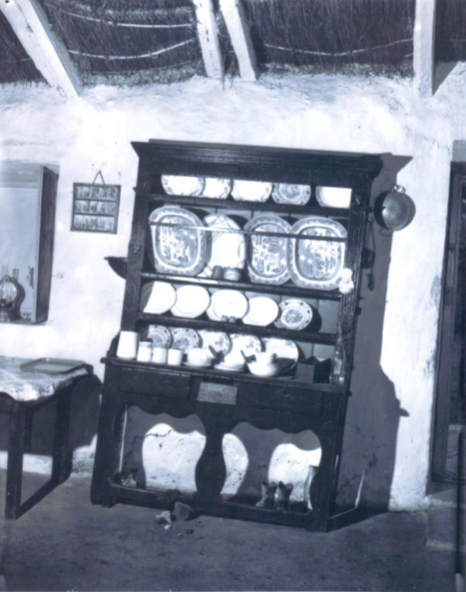
The cottage was a typical direct entry cottage with door at front and rear, leading directly into the kitchen with a central chimney behind which the ‘parlour’ was located. At the other end of the kitchen were 2 rooms with a possible loft overhead.
Olive Carey, Duchas na Sionna http://www.duchasnasionna.eu
CHTL was given the best room in the house to sleep in - the parlour of the house. This was normally kept for very special visitors and would be rarely used. The mention of an old lady cries could tie in with a story told about the shock one 'hostess' had when the identity of her 'guest' was revealed:
“It was not only to Brennan that the General was an embarrassment. One hostess almost died of fright when she heard who was to be a guest in her house. What did a general eat, she wanted to know. The good lady rose to the occasion and Lucas certainly had no complaints about the way he was looked after."
Ireland’s Civil War, Calton Younger Fontana Press p106-7
CHTL would have been most concerned with not upsetting these kind ladies and would have made a particular effort to show concern for and appreciation for any one who might be suffering because of him being foisted upon them.
Find out more about Hastings: https://roundaboutshannon.clareheritage.org/places/hastings-farmhouse
The ‘railway trouble’ was the strike where railway workers refused to drive trains that carried military personal or their equipment and stores. It wasn’t resolved very quickly after Station master Slattery, who had been working round the strikers by using non striking staff, had been captured and intimidated by the IRA.
Meanwhile in Fermoy a new Brigadier- General took over command. Whatever the qualities he may have had that made the military select him to fill CHTL's shoes - he didn't possess his predecessor's tactful right foot. Brigadier-General Willis stumbled into Fermoy putting his two left feet right in it!
Brigadier-General Willis arrived in Fermoy yesterday and took over the command. He told the townspeople that well-conducted soldiers would be allowed out of barracks under strong guard. Armed guards with Lewis guns were then placed in various streets.
The Brigade-Major invited several townsmen to a conference, and when they came to the barracks they were told that the orderly sergeant was out and one of them was also told he must be searched before seeing the Brigade-Major. Accordingly the townspeople went away. The Brigade-Major telephoned his regrets to the deputation, explaining that the incident was the blunder of a young soldier. He invited the deputation to pay another visit, but they decided not to go.
Newspaper cutting found in CHTL's papers
After all the terrible destruction and looting in their town caused by those who were supposedly there to protect them, the 'deputation' from Fermoy would have expected to be treated with the utmost of respect. However being told that there would be machine guns in the streets; being greeted by a 'blundering' junior soldier because the senior sergeant was 'out'; being searched
when invited to a meeting to discuss the rioting by British soldiers; was what they received. It was no wonder that they 'decided not to go back'! They were the innocent party - it was the British soldiers that had caused criminal damage and terrified the good people of Fermoy. The new General at Fermoy should have been grovelling with apologies - not insulting his guests!
Major-General Edward Henry Willis
Major-General Edward Henry Willis, CB, CMG (Royal Artillery) (1870– 26 June 1961), it seems, was another former pupil of Marlborough College, along with CHTL, Henry Wilson and General Macready.
On 14 February 1890, Willis was commissioned into the Royal Artillery. He served in Queensland with the Colonial Forces and in India and Ireland. During WW1, on 30th January 1916 he became an acting Brig -General in the 12th Division and the 17th Army Corps in France . He was in the 4th Army Corps with the British Army of the Rhine from 25 March to 11th September 1919. This more or less mirrored CHTL’s time in Germany. ‘He joined the 6th Division in Ireland on 17th March 1920.’
After serving in World War I, he was appointed Major general, Royal Artillery in 1921 and Director of the Royal Artillery in 1927. He became Lieutenant Governor of Jersey in 1929 and retired in 1934.
A Hard Local War: The British Army and the Guerrilla War in Cork 1919-1921 by William Sheehan
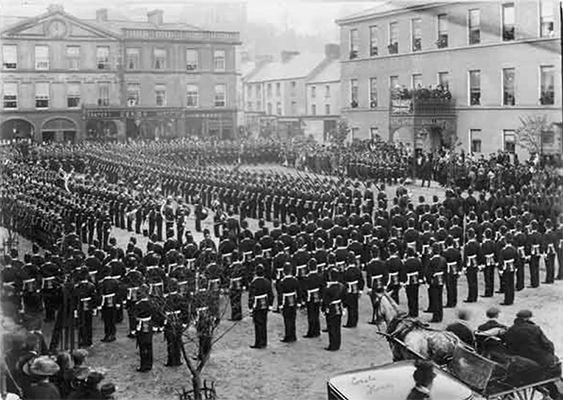
An account of a IRA officer coming very near to CHTL’s replacement, illustrates very well the difference between the two men. Brig General Willis was the stereo-typical British General, whereas Lucas did not fit that description at all.
In March 1921 IRA Column Commander George Lennon, who was on his way home after a meeting with Liam Lynch, had an uncomfortable close encounter with Brig. General Willis on a train. Lennon was in disguise as a well-to-do intellectual and was travelling First Class to avoid the British troops in the other carriages.
“On the train.
When the train drew up at Fermoy Station he thought that he was taking leave of his senses. A tremendous commotion was going on along the platform. An officer smartly opened the door of his compartment (1st class) and came briskly to attention. A number of English looking ladies were waving regimental colours, the three buglers to their front blew a tattoo salute. Then the brigadier general and his two staff officers stepped most importantly in and took their seats.
In a flash his mine cleared and he realised what was afoot. The Brigadier’s predecessor, one General Lucas, had been taken prisoner and carried off to an unknown destination. Generals are not expendable and they were taking no chances with this one. The train pulled [out] filled with soldiers and a plane was flying around overhead. At the tail end of the platform officers let go a salvo of Verey pistols as a final noisy salute.
‘Quite a send off sir’, said one of the staff officers most respectfully.
‘Some of our offensive system going west’, growled the General.
The general looked like a character out of punch. He had a walrus moustache, a beefy look and he glared at everything in his immediate vicinity.”
Poor Lennon was stuck in the carriage with Brig. General Willis. One could imagine that if CHTL had been there instead the two would have become engaged in a friendly conversation and maybe a game of cards and glass of whiskey would have been involved? Unhappily for Lennon it was Lucas’ replacement that he was imprisoned in the carriage with.
"Telephone poles flashed by and the fields with their green ditches seem to go round in circles. Now what was he to do? When the train got to Tallow Road station Constable Neery, who knew him from childhood, and two other RIC men got into the next compartment. All the other stations appeared to be heavily guarded by RIC men and Tans. He cursed Liam for bringing him all that distance for a 15 minute consultation; the whole business could have been dealt with in a dispatch. His one chance was to get off at Cappagh and make a dash for it. The next station beyond that was his own town where every constable knew him and he be dragged off. At any rate he was unarmed and he would not be tortured. He could imagine the angry plaints of the General, ‘Damnable inefficiency, putting me into a carriage with a dangerous Shinner - fellow might have shot me, might have murdered the three of us."
For many in the IRA, being captured was not an option. CHTL had referred to that when chatting to Joe Good: "it is unlikely that you fellows will be caught alive"*. For Lennon this was a situation that he’d thought of and feared.
*BUREAU OF MILITARY HISTORY, 1913-21 STATEMENT BY WITNESS DOCUMENT NO. W.S. 388 Witness Mr. Joseph Good, ”Raisin”
Then he realised that he had made a vow not to be taken alive. Nurse Kent [Kate Cullinane of Kilmacthomas] had given him a slim tube of morphine tablets as the idea of wounds and torture filled him with terror but he was not going to have recourse to them this time. He had meant to ask Nurse Kent if it was sufficient to swallow the things, as she carried around some kind of a syringe and needle. Still, he could not allow himself to be taken he would have to make a dash for it.
Thankfully for Lennon, he had a lucky escape. Brig. General Willis was not at all interested in anyone who happened to share his carriage and fortunately, the one person who could have blown the whistle on him decided to look the other way.
Coming to Cappagh station he pulled all his mental and physical resources together. One of the officers most politely helped him with the door and quaking inwardly he stepped out. By some miracle the platform appeared to be deserted. Constable Neery in the next carriage appeared astounded for a bare instant and quickly averted his eyes. Oh good and darling man, thought he, may the heavens bless you. The train pulled out of the station carrying the Brigadier General to future triumphs. Perhaps to Singapore.
P 122-123 Rebel Heart: George Lennon : Flying Column Commander By Terence O'Reilly
